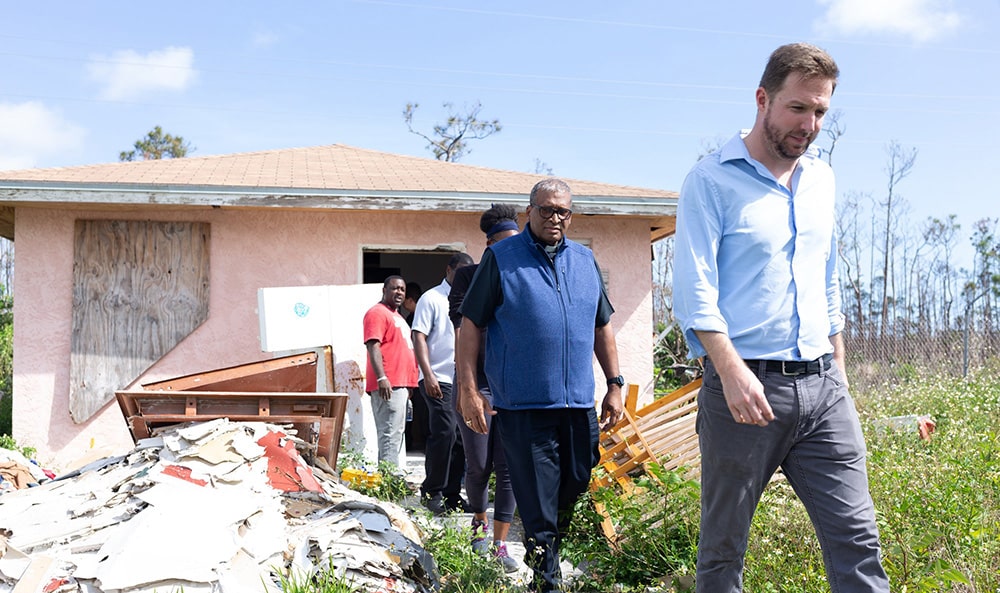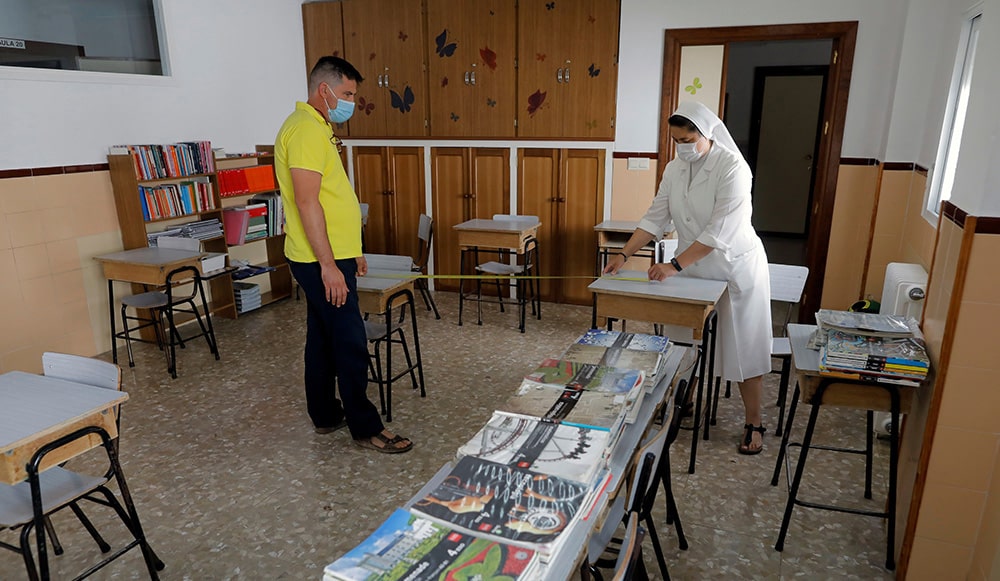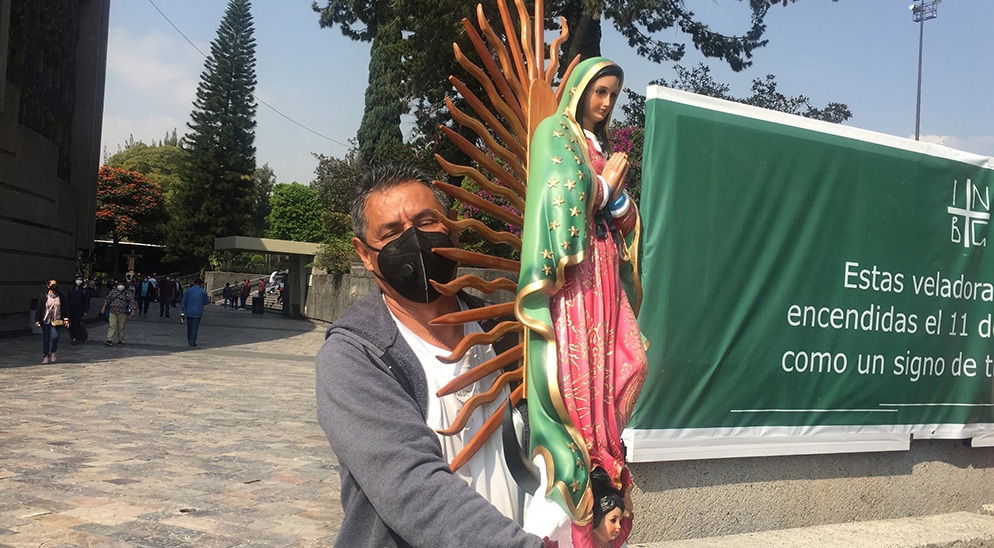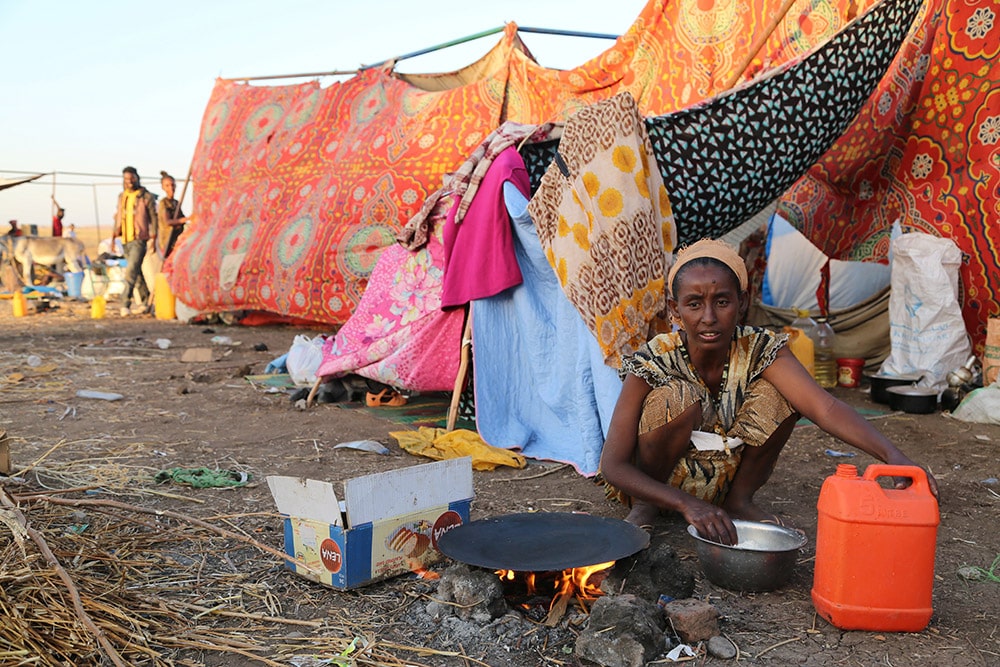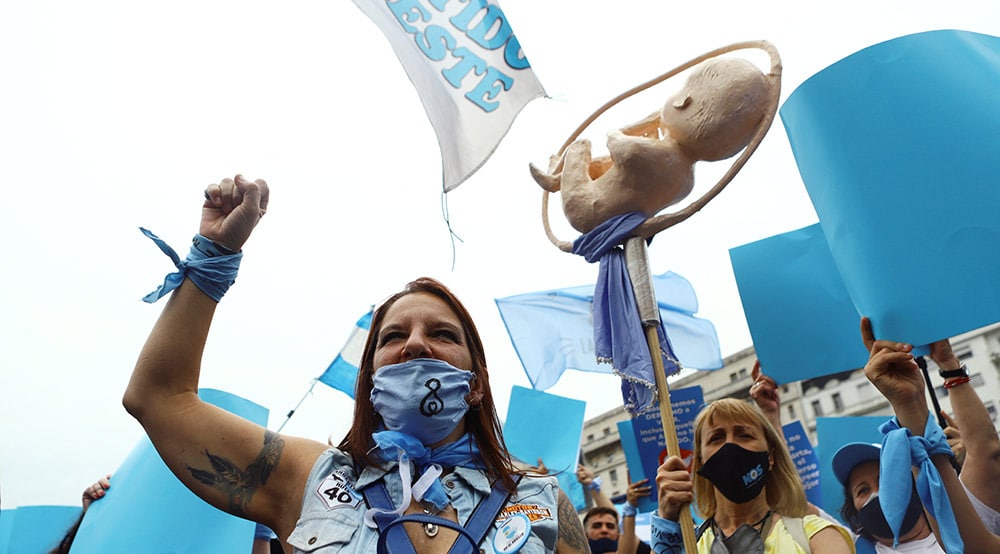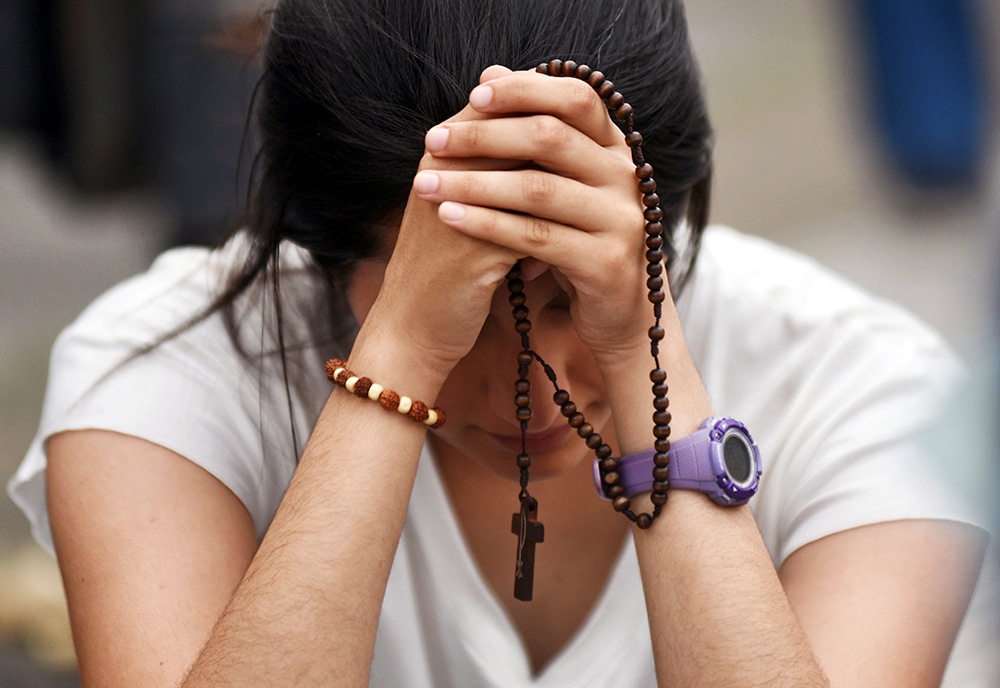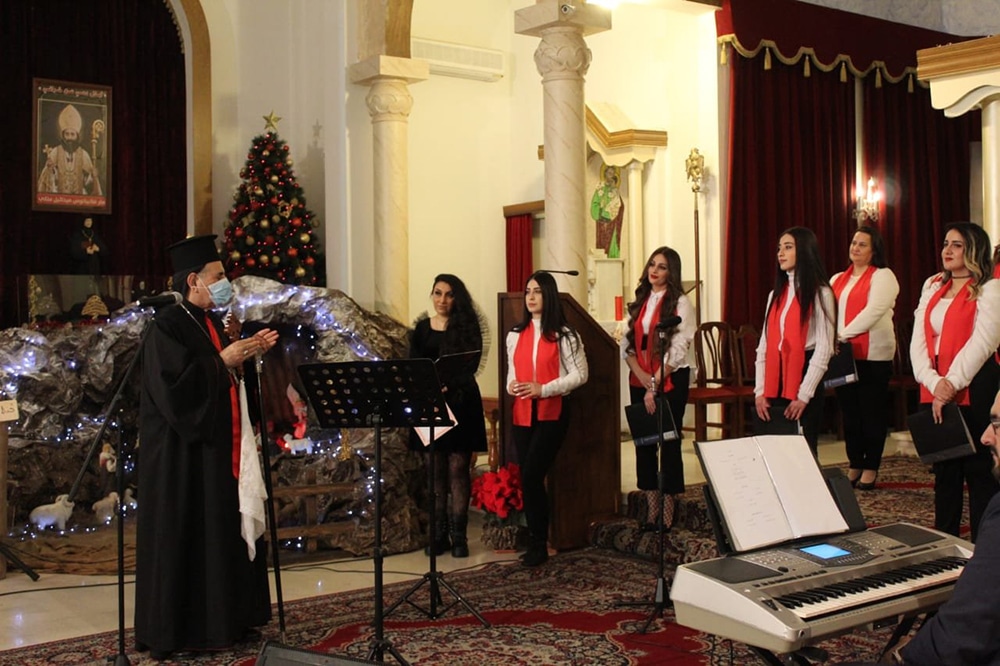MIAMI (CNS) — Despite curfews, lockdowns and COVID-19 travel restrictions, rebuilding of a Bahamas church destroyed in 2019’s Hurricane Dorian is about to begin — with a little help from U.S. Catholics.
The category 5 Hurricane Dorian made a prolonged landfall in the northern Bahamas Sept. 1-3, 2019, as one of the strongest storms in Atlantic history, with sustained wind speeds maxed out at 185 mph.
It tied a handful of other hurricanes as the second-strongest storm in the Atlantic since 1950 and left several church properties damaged or badly destroyed.
But a gift of $340,000 awarded by Catholic Charities USA and facilitated through Catholic Charities of the Archdiocese of Miami will assist Bahamas Catholics with some of their priority recovery and rebuilding projects. That includes Sts. Mary and Andrew Church and rectory in Treasure Cay in the Abaco Islands, which was rendered “a pile of rubble” by Dorian’s storm surge.
“We have the plans for rebuilding the church and we are working on putting together the resources to do that. We are hoping to get started before the end of this calendar year,” Nassau Archbishop Patrick C. Pinder said in a mid-November phone conversation with the Florida Catholic, Miami’s archdiocesan newspaper.
Archbishop Pinder talked about the yearlong post-hurricane rebuilding and recovery projects in the Nassau Archdiocese along with the impact of the global pandemic, which has badly hampered the travel and tourism economy in the Bahamas.
The Archdiocese of Miami and Catholic Charities of Miami have been providing logistical support and donated materials to the church in the Bahamas over the past year, according to Peter Routsis-Arroyo, CEO of Catholic Charities of Miami.
Mary Star of the Sea Parish in Freeport, Grand Bahama, has served as a key point of hurricane relief in that area.
In addition, a partnership between the Nassau Archdiocese, Caritas Antilles and Catholic Relief Services has been accelerating home refurbishment, mental health programming and emergency supply distribution at so-called resiliency centers for that island. That group recently completed several pilot projects resulting in two newly built homes in eastern Grand Bahama.
“In the meantime, they are doing lots of psycho-social work and continuing with the (refurbishing) of homes,” Archbishop Pinder said.
“We also have been doing a number of food distributions. Our focus tends to be on what we call targeted distribution where we can find people who have been overlooked and to make sure they get baskets of food he said. “We go to the community and you look for people who may have been overlooked maybe due to some kind of disability.”
The Caritas resiliency centers also offer counseling and stress management classes “to help people get some degree of normalcy and a sense of connectedness, and to put people in touch with existing social service agencies,” the archbishop said.
Hurricane Dorian also severely damaged two Catholic schools in Abaco that have remained shuttered for most of the past 12 months: St. Francis de Sales Catholic School and Every Child Counts School for Special Students in the town of Marsh Harbour.
In mid-October, St. Francis de Sales School reopened for some 80 primary school students in a virtual mode, with plans to move to in-person instruction in November. The special needs school remains in need of more extensive repair.
The reopening of St. Francis de Sales School has been a morale booster for the wider Marsh Harbour community, according to Archbishop Pinder.
“It is a tremendous psychological boost to the community with a school coming back like that,” he said. “You rebuild a Catholic school and the entire community is lifted up by that.”
Hurricane Dorian’s official death toll is listed at 50, with many others assumed missing or dislocated to other places following the storm. Many Bahamians fled to the capital city of Nassau, where they enrolled their children in schools, while others went to other islands or even Florida in the immediate aftermath of the disaster.
Most of the temporary shelters have closed and evacuees have either returned to Abaco or found new local housing, according to Archbishop Pinder. The Bahamian government estimates that Dorian affected 70,000 people, some 60% of whom may have lost their homes.
And just as the United States moves back toward increased COVID-19 containment measures, the Bahamas is emerging from a second wave of restrictions on gatherings, travel and in-class education.
But the pandemic has left scars on the economy and workforce.
“It is difficult and challenging, no doubt about it: There has been a lot of belt-tightening and a lot of people have been laid off,” said Archbishop Pinder. “Certainly this is a long journey we are on and to some extent a painful journey.”
Archbishop Pinder said he has not traveled internationally since last January. He noted that Bahamians can travel to the U.S. but first need to show timely negative COVID-19 swab test results both when exiting Nassau and returning. Recently, they also have been required to quarantine for a two-week period. Likewise, visitors going to the Bahamas need to be tested and to acquire a health visa.
Church attendance around the islands, he said, has been restricted to about 30% of church capacity after in-person attendance was allowed starting in early June, along with required mask-wearing, social-distancing and hand-sanitizing safety protocols.
The pandemic travel restrictions also slowed inter-island travel, creating delays in some of the Hurricane Dorian rebuilding projects and hurricane relief efforts.
But Archbishop Pinder was looking forward to some positive changes going into Christmas, with many major resorts indicating they planned to be reopen early in December.
“It certainly won’t be the kind of Christmas we had before for a number of reasons, not the least of which is all the (large) gatherings won’t be able to happen,” Archbishop Pinder said. “But the fact that we are beginning to open up again and that tourists have been allowed to travel with certain restrictions will be a tremendous relief given the current circumstances.”
– – –
Tracy writes for the Florida Catholic, newspaper of the Archdiocese of Miami.

